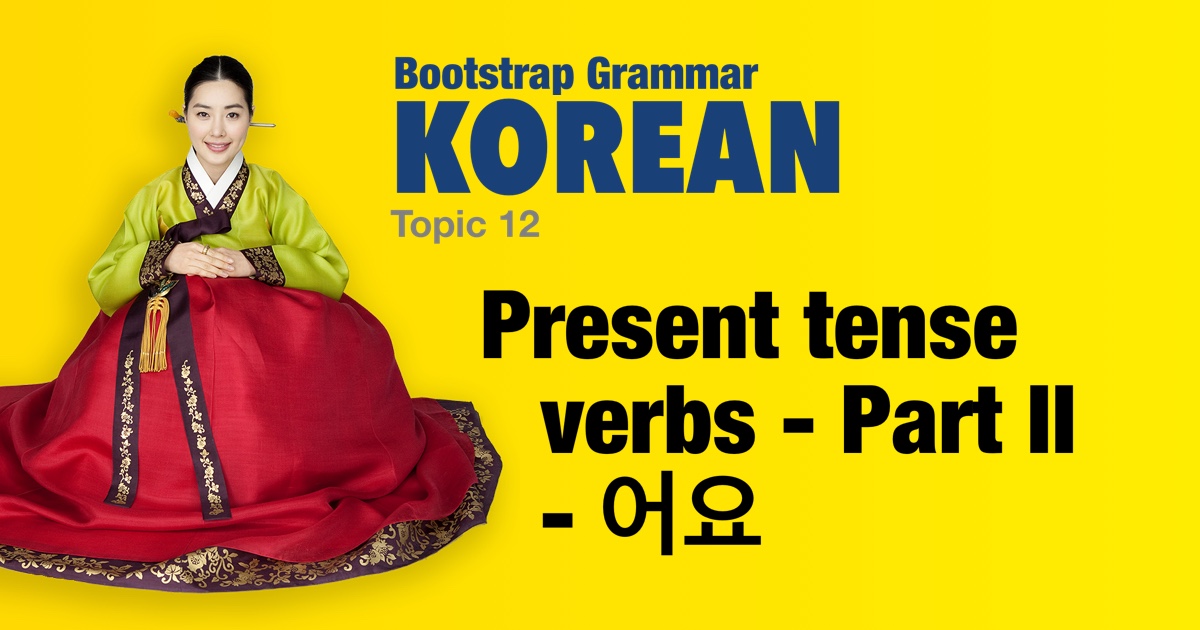Korean grammar - Present tense verbs - Part II - 어요 |
|||
|
|||
Pattern: Verb stem + 어요 For verbs with a last vowel NOT ㅏor ㅗ we add the suffix 어요 to form the present tense. -- If the final letter of the verb stem is a consonant just add 어요. -- If the final letter of the verb stem is ㅓthen adding 어요 will mean just adding 요. -- If the final letter is ㅣthere will be 'vowel combination': ㅣ + ㅓ = ㅕ -- If the final letter is ㅜ there will be 'vowel combination': ㅜ + ㅓ = ㅝ -- If the final letter is ㅡ there will be 'vowel contraction': ㅡ + ㅓ = ㅓ |
| Examples: | |
|
언덕에 나무가 있어요.
On the hill there is a tree.
|
|
|
미나는 동생이 없어요.
Mina doesn't have siblings.
|
|
|
아이는 혼자 서요.
The child stands up alone.
|
|
|
운전사가 기다려요.
The driver is waiting.
|
|
|
인터넷이 느려요.
The internet is slow.
|
|
|
선생님이 가르쳐요.
The teacher teaches.
|
|
|
광일이가 배워요.
KwangIl is learning.
|
|
|
애완 동물이 싸워요.
The pets are fighting.
|
|
|
엄마가 줘요.
Mom gives it (to me).
|
|
|
동생이 깨워요.
Brother is waking (me) up.
|
|
|
그 자전거는 너무 커요.
That bike is too big.
|
|
|
아이가 써요.
The child writes.
|
|
|
딸기가 맛있어요.
The strawberry is delicious.
|
|
|
개가 왜 짖어요?
Why does the dog bark?
|
|
|
소녀는 읽어요.
The girl is reading.
|
|
|
소년이 먹어요.
The boy is eating.
|
|
|
진수가 왜 웃어요?
Why is Jinsu laughing?
|
|
|
한울이는 왜 울어요?
Why is Hanul crying?
|
|
|
이 가게가 지금 열어요?
Is this shop opening now?
|
|
 |
|




